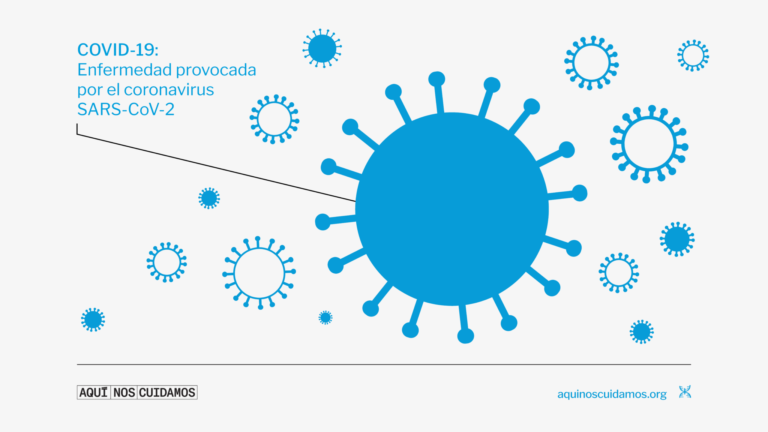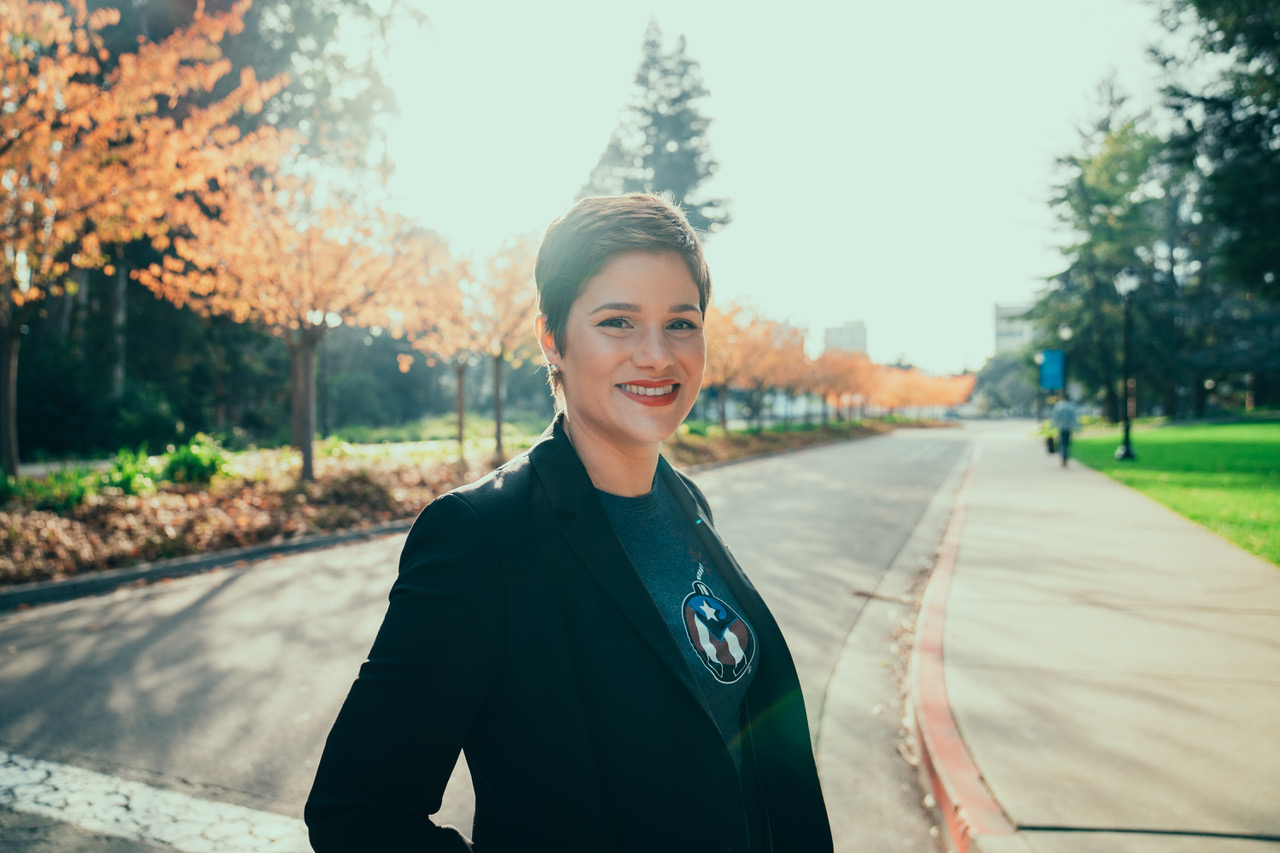
ESAL spoke with director Mónica Feliú Mójer about Aquí Nos Cuidamos (“Here We Take Care of Each Other”), a free collection of educational, community-centered and multimedia content related to COVID-19. Launched as a program of the nonprofit CienciaPR, the culturally relevant resources equip Puerto Ricans to respond to the pandemic and future challenges.
DR: How would you describe the mission of the Aquí Nos Cuidamos initiative you direct?
Feliú Mójer: Our mission is to facilitate COVID-19 prevention among marginalized communities in Puerto Rico, whether low income, elderly, deaf, geographically remote, or minoritized in other ways. In many cases, leaders in marginalized communities act as first responders; they have the trust of the community but may not be equipped with all the resources they need. So, we decided to leverage our most valuable asset to create a toolkit that draws from best practices in risk communication and health sciences to promote COVID-19 prevention.
DR: What is this “most valuable asset” you refer to?
Feliú Mójer: The asset is scientific knowledge coupled with our commitment to put science in service of Puerto Rico. The toolkit is culturally relevant, reflecting the multiple identities and realities of communities in Puerto Rico. The Aquí Nos Cuidamos content is ready to use and offered in Spanish, but one size does not fit all. The core messages can be accessed through various types of media, including for example illustrated videos that feature experts in science and public health and include sign language interpretation. We have guidelines, manuals, infographics, and checklists that people can download. For remote communities without internet access, we created audio messages that can be broadcasted from vans with loudspeaker mounts.
DR: What inspired you to launch the Aquí Nos Cuidamos initiative?
Feliú Mójer: Puerto Rico always suffers from a chronic lack of timely, accurate science information in Spanish and the pandemic made it worse. The COVID-19 emergency was unfolding really fast, and because we are a territory of the U.S. much of the guidance came in English from the CDC and the FDA. In this life-threatening emergency, we needed to quickly tailor the information for Puerto Rican communities and Spanish-speaking communities more generally.
For me, this project really embodies so many of the things I’m really passionate about. Beyond my research interests, I wanted to somehow serve PR through science. I am very passionate about equity and justice and inclusion. I love community engagement. This project brings all of these things together. And it helps me take my anxiety about the pandemic and the horrible things that have been happening and transform that energy into something positive.
DR: How did you decide where to focus?
Feliú Mójer: I wanted to focus on marginalized communities because of their vulnerability. I myself grew up in a mostly working class, lower income community. We had to drive 15 minutes to get any type of service. The closest hospital was just a health clinic. These marginalized communities often get left out of education efforts. For example, the deaf community in Puerto Rico has faced big challenges during the pandemic due to a lack of accessibility services and the fact that face masks represent yet another communication barrier for them. As we were getting started with Aquí Nos Cuidamos, a sign language interpreter named Evelyn Medina Bonilla saw what we were doing and reached out to us. She helped us understand the particular needs of the deaf community and has remained a key guiding partner.

Dr. Mónica Feliú Mójer
DR: How did you figure out what various vulnerable Puerto Rican communities needed?
Feliú Mójer: We took this program as an opportunity to partner with communities. From its inception, we conducted listening sessions, virtually, to hear from different community-based leaders, groups, and organizations. We learned a lot from them – about their concerns, needs, and questions, helping us understand what to provide. We realized that these communities are already doing science and that tapping into their knowledge was a key to success, as opposed to a top-down approach to telling them what they needed. We approached the program design with humility and respect.
DR: What is your relationship with CienciaPR?
Feliú Mójer: CienciaPR (Ciencia, which means science in Spanish, Puerto Rico) is a nonprofit that brings together anyone with an interest in Puerto Rico and science. We tap into the collective knowledge of that community to create social impact through science communication and education and leadership training. For example, we train young scientists and promote civic engagement of scientists in Puerto Rico, connecting them to marginalized communities. I’ve been a part of CienciaPR since 2006, shortly after it was founded.
DR: What sort of work does CienciaPR do in relation to the Aquí Nos Cuidamos toolkit?
Feliú Mójer: Since the beginning of the pandemic, we’ve been really active in communicating about COVID through media, but also at the policy and public health levels. Members of our organization have published close to 100 articles and op-eds about COVID-19 and conducted hundreds of interviews by TV, radio, and podcast. CienciaPR is supporting teachers and homeschooling parents by creating downloadable materials, as well as ensuring there are enough COVID-19 tests available in Puerto Rico.
DR: Where do you see this work going into the future?
Feliú Mójer: For me as a communicator, Aquí Nos Cuidamos has been a transformative experience. This project has shown me how much more work there is to do, such as learning along with the deaf community. We’ve realized we need to build the capacity of community leaders, such as public health workers, and move towards an even deeper community engagement.
We recently had our first meeting with 10 Aquí Nos Cuidamos’ community ambassadors, who will be supported to do their own prevention projects in their communities. We are providing training in risk communication and the use of science education materials, while also preparing them for mental health challenges presented by the pandemic. Trained community ambassadors can adapt content to the reality and needs of their communities. We foresee that communities can apply science to many problems, not just the pandemic but also food security and access to clean water. We are really trying to help communities become more resilient and able to address their own needs.
DR: How does Aquí Nos Cuidamos and your other CienciaPR work reflect your background as a Puerto Rican Ph.D. neuroscientist?
Feliú Mójer: I came to a realization some years ago that I could bring my whole self into science – my culture, my personal background, and my life experiences. They cannot be separated from who I am as a scientist and a person. Science should not exist in a cultural vacuum. Learning research has shown that if you make science relevant to the culture and context of people, they learn science better and connect with it more. My work is very intentional about making sure that people understand why science matters to them and how they can use the knowledge to solve problems in their world.
Are you involved with an organization or effort that you think might be of interest to the ESAL community? Or have heard about an organization or initiative that you’d like to learn more about? Let us know here, and we may feature it in a future post.